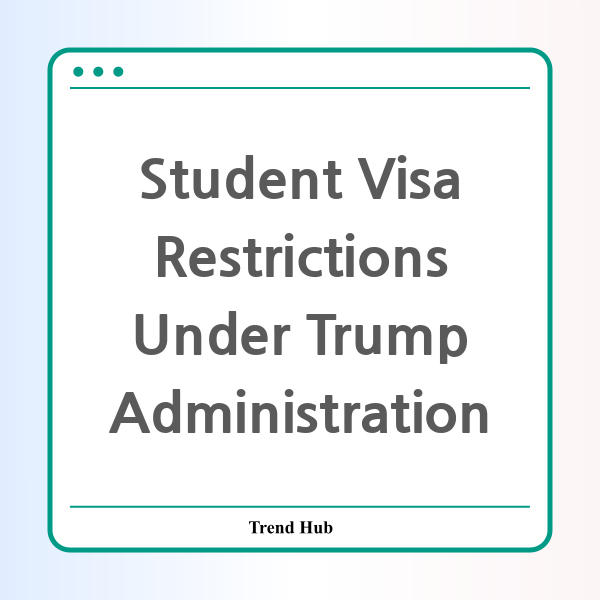* This website participates in the Amazon Affiliate Program and earns from qualifying purchases.

As the landscape of immigration policy shifts under the Trump administration, international students and educational institutions are left grappling with new visa restrictions that could significantly impact the flow of foreign students into the United States. With Secretary of State Marco Rubio announcing stringent measures targeting foreign individuals accused of censoring American speech, the implications for student visas are becoming increasingly complex.
One of the most notable recent developments is the announcement of a long-term pause on new student and exchange visitor visa interviews at U.S. embassies and consulates. This pause is causing widespread anxiety among prospective students who have invested substantial time and resources in pursuing education in America. Many are questioning the future of their academic aspirations as they face significant uncertainty.
According to reports, the suspension applies to all categories of student visas, including F and M visas for academic and vocational students, as well as J visas for exchange visitors. Specifically, new applicants seeking these visas are now subject to this pause. Fortunately, those who already have scheduled interviews will not be affected, as their appointments will proceed as planned.
Critics of the policy are voicing concerns about the lack of clarity surrounding the motivations for the suspension. The Trump administration cites the need to enhance national security as a primary reason, particularly through the implementation of social media screenings. This initiative is designed to vet applicants based on their online activities, especially if they are deemed hostile to U.S. interests. However, this decision raises significant concerns regarding privacy and the potential for increased surveillance of foreign applicants.
Many experts warn that these new screening measures could lead to longer processing times for visa applicants, potentially discouraging talented individuals from pursuing opportunities in the U.S. educational system. The repercussions of such restrictions could have lasting effects on the American economy, as foreign students contribute billions of dollars annually through tuition and living expenses.
It's important to note that the pause does not affect Canadian students, who are generally exempt from visa requirements for studying in the U.S. However, they still need to present valid I-20 or DS-2019 forms at the port of entry.
Legal challenges to these visa policies remain uncertain at this time. Past immigration policies under the Trump administration have faced various levels of scrutiny, and it remains to be seen whether the current pause on student visa interviews will attract similar legal action.
As discussions around immigration continue to evolve, the implications of these policies on student visas will be a critical point of focus. Stakeholders, including educational institutions, students, and policymakers, must navigate this complex environment as they advocate for the importance of maintaining a welcoming and inclusive atmosphere for international education.
In summary, the recent announcements surrounding student visa restrictions under the Trump administration signify a fundamental shift in immigration policy aimed at protecting national interests. However, the methodology and implications of these changes raise serious questions regarding America's commitment to free speech, the future of international student enrollment, and the overall landscape of U.S. higher education.
* This website participates in the Amazon Affiliate Program and earns from qualifying purchases.